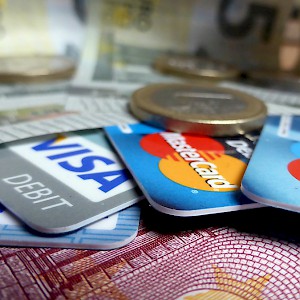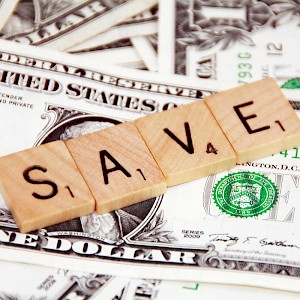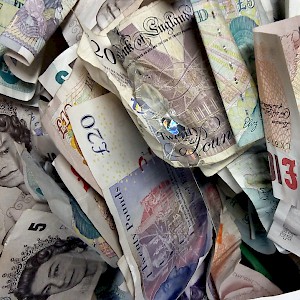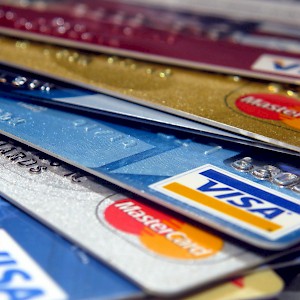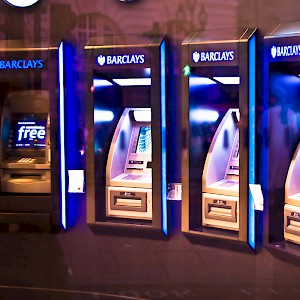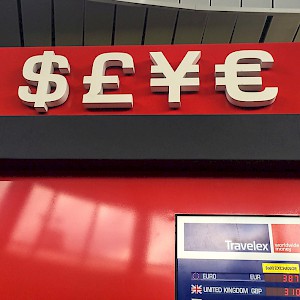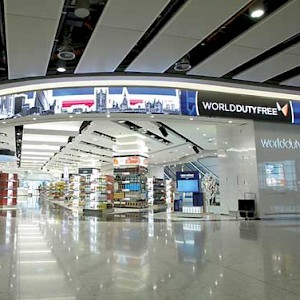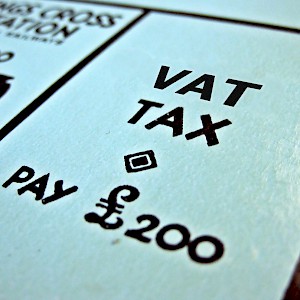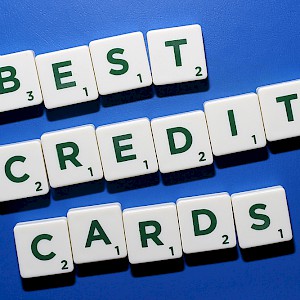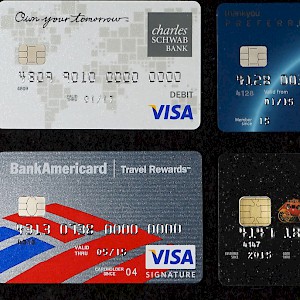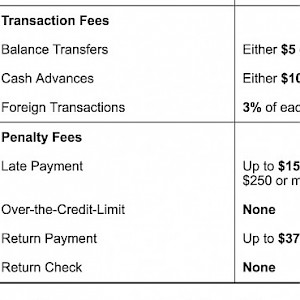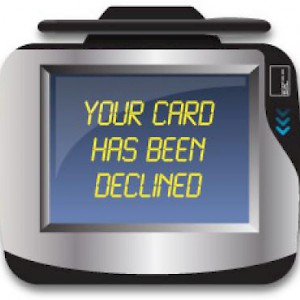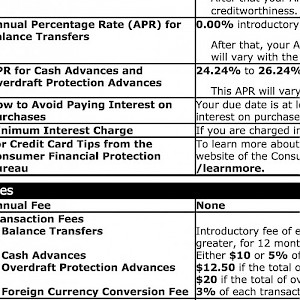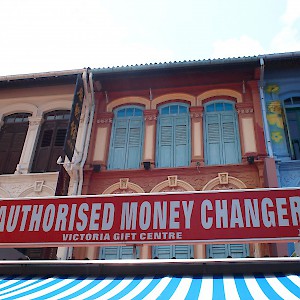Traveler's cheques
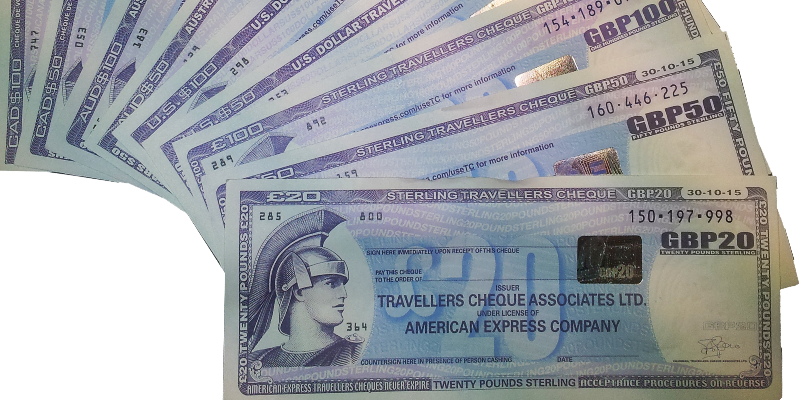
Why traveler's checks can sometimes still matter (as a way to carry emergency backup cash) in the age of ATMs and computerized banking
Back in the Dark Ages of Tourism (circa 1850-1995), a traveler's check—or, if you're British, traveller's cheque—and the local American Express or Thomas Cooke office were the only way to get your paws on some local cash while abroad.
However, the aggressive evolution of computerized banking and proliferation of faster, easier, and cheaper-to-use ATM machines have over the past decade turned these old travel standbys nearly into quaint museum pieces.
What is a traveler's check?
For those of you new to foreign travel: a traveler's check is a form of Monopoly money that the whole world has agreed to treat as if it were real. It's a pre-paid slip of paper worth $20, $50, or $100 (there are bigger denominations, plus tensies, but none are useful for European travel).
You buy these things for face value from your bank, AMEX travel office, or AAA office—though your bank may charge you a modest fee, and only AAA members and AMEX cardholders can buy the things from those respective businesses without paying the usual 1% to 4% commission.
There's a space on the check where you sign each and every one before you take off on your trip (there are "couples" version that you both sign so that then either can use them).
The downside to traveler's checks
Making a special trip to the bank or AAA office and signing a pile of papers is but the start of the pain-in-the-butt process of using traveler's checks. Cashing traveler's checks—exchanging them for British pounds or other local currency—can be a tedious process.
Once you’re in the U.K., you have to find a bank (and "banker's hours" over there are even more restrictive than back home), American Express office (of which few remain; London has one at Heathrow Airport and another at 30-31 Haymarket, just down from Piccadilly Circus), or (in a pinch) exchange booth—many larger shops and hotel front desks will do this, too, but at awful rates—wait in line, dig your passport out of your money belt, wait for them to go photocopy it, countersign and date all the checks you’re going to cash (these days often limited to $200 a visit), and then carefully jot down each check's serial number.
In return, the bank will give you some pounds at a lousy rate while charging a high commission.
Excited yet? There is a point to all this: insurance.
The benefits of travelers' checks
Traveler's checks still have one huge advantage over any other form of carrying money:
If lost or stolen, traveler's checks will be replaced by the issuer, free of charge.
Remember the step back before you left home where you wrote down the checks' serial numbers on your backup info sheet? (You did.)
That's crucial, because when you get back to your hotel at the end of the day you have to cross those numbers off the master list of all your checks' serial numbers—the one you laboriously copied down on a separate sheet of paper and have been carting around Europe with you while making sure to keep it in an entirely different place from the checks themselves (see, if you loose the checks and the list, you're out of luck because you can't tell AMEX, or whomever, which ones to replace). » more
Traveler's checks also also computer-proof. Sometimes you'll find the ATMs of an entire town evilly disposed to your bank card or Visa (perhaps a computer glitch or the phone connections to check your PIN are down). A handful of traveler's checks in your money belt can save the day, and they remain the safest way to carry your dollars.
- Aaa.com - Your local AAA auto club will sell members AMEX-branded traveler's checks at no fee.
- Americanexpress.com - The most widely accepted checks. They will also sell checks to holders of most types of American Express cards at no commission.
- Thomascook.com - Britain's mighty financial and tourism operator issues MasterCard traveler's checks.
- Citi.com
Tips
Get traveler's checks issued in dollar amounts (as opposed to, say, Euros or Pounds). These will be more widely accepted abroad—especially if you have some left over at the end of your U.K. holiday and will be using them on a trip later to Thailand or something.
You'll have no problem getting checks branded American Express, Visa, or Thomas Cook—especially AMEX—accepted just about anywhere in Europe (discounting perhaps Angelo the town barber, or that elderly couple with the five-table bistro).
Cash $100 checks when you'll be in town for a while and $50 ones near the end of your visit so you don't end up with extra currency. If you're passing through a non-Euro country (say, Switzerland), a $20 check or two may come in handy.
It's wise to get the kind of traveler's check that either you or your traveling companion can counter-sign. Just makes things easier.
Use your checks to get cash at a bank or the American Express office, not as currency. Using a traveler's check at a shop, hotel, or restaurants to pay directly for a meal, purchase, or hotel room is a good way to ensure you get the worst possible exchange rate.
Obscure areas, especially smaller towns and islands, may have no bank. In a crunch you can always change a check at a local business, usually at a pretty pathetic rate.
These flat fabric wallets (look like pancaked fanny packs) that wrap around your waste and are worn under your clothesare like portable safes. Carry all of your most precious documents in your money belt—passports, spare cash, plane tickets (yes, sometimes you still get physical ones), credit cards, and traveler's checks.
No, the idea isn't to fool a pickpocket by hiding your stuff. He knows full well that smart tourists wear these things—but if you wear it as intended (under your shirt, tucked down the front of your pants), there is simply no way he's going to be able to get to it without you noticing! » more
Write down the serial numbers of all your traveler's checks on your backup info sheet.
As you cash them, jot down the serial numbers of those cashed.
Then be sure, at the end of the day, to cross those numbers off all copies of your backup info sheet.
If you do not do this, you will be unable to report which checks were actually stolen in the event you need replacements.

